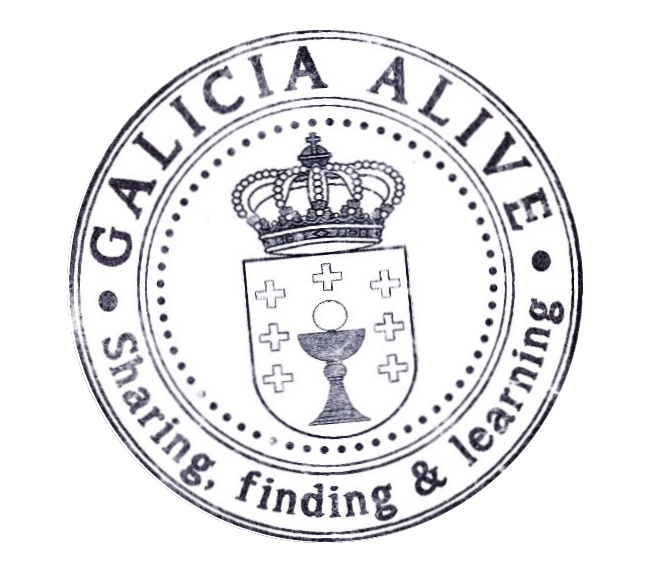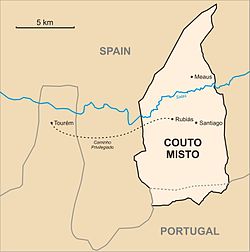Couto Mixto 
Couto Mixto (in português: Couto Misto) was independent state, similar to a republic located in Salas river valley, north part of mountain range of Larouco between Galicia and Portugal from 1147 to 1868. It comprises its capital, the village of Santiago, and Rubiás and Meaus (nowadays As Maus). Its total area was 26,9 Km² and had a population of 200 inhabitants in 1845.
Its name comes from latin: cautum (‘place’) and mixtus (‘mixture’).
It was connected to Castelo da Picoña since Low Middle Age and later related to Casa de Bragança, located in a bordering place as an own organization, as a sovereign state, which was not linked to Portuguese Chrone neither Spanish. Right and privileges Couto Mixto had there were asylum to fugitives from Portuguese or Spanish justice, no giving soldiers to any army, no paying taxas, free trade (salt), free crop (tabacco) and free nationality (Spanish or Portuguese).
When the Treaty of Lisbon was singed in 1864, borders between Spain and Portugal were defined to avoid smuggling and gangs. Its land became part of Kindom of Spain, in the other hand, Kindom of Portugal took pobos promiscuos (Promiscuous towns). Land of Couto Mixto also included a small part of fields that was included into the Portuguese town of Montalegre.
Benposta
Benposta, from ben (well) e posta (put), know in castellano as “Ciudad de los Muchachos” (City of Guys), is an communal benefit organization for young people with problems. The concept, first city, of Benposta was founded by Jesús Silva Méndez in 1956. Benposta was created with catholic bases and an independent ideology. It was located in Seixalbo, close to Ourense.
Benposta is place for street children and deprived all around the world. Every city has its own parlament, public positions as a mayor et cetera. It was design as house safe and relax for homeless children or under violence episodes.
From the beginning, Benposta spread is city style around the world. Nowadays some of these ciities accept adults too. Adults in Benposta have the same rights compare to children, never over them, and they are not guards.
The goal of Benposta cities is promoting a healthy growth, respect and fighting for child rights. All neighbourgs are considered citizens with the same rights. All of them are part of the decisions for the community.


